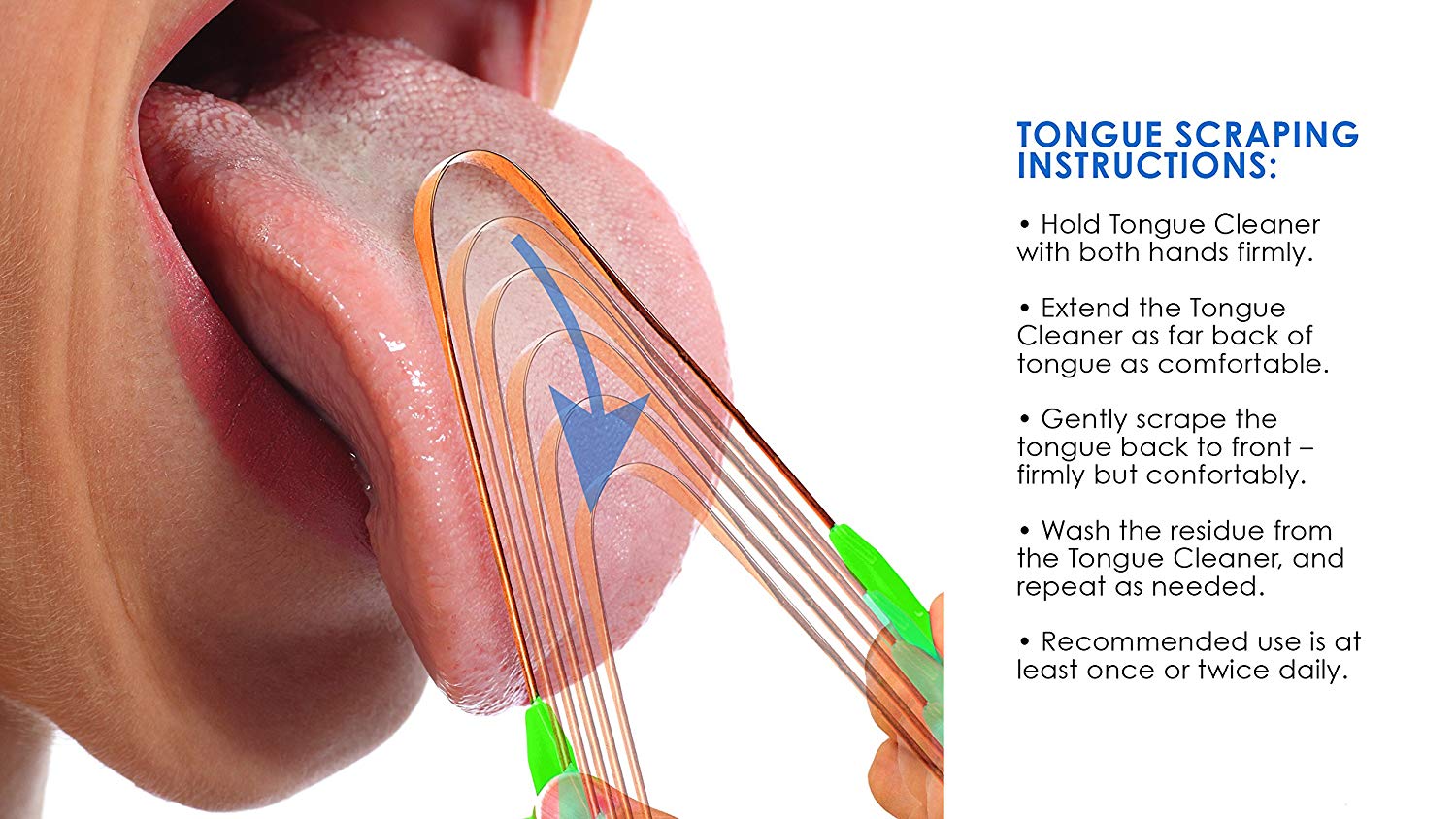As the purpose of the microbiota of the mouth is becoming more understandable, ancient practices to support oral hygiene are becoming more and more popular. One such practice which is recommended and backed by various studies is known as tongue scraping.
Tongue scraping is the practice of scraping your tongue, preferably before brushing your teeth. Studies have shown that this simple technique:
- Brings down the level of undesirable bacteria in the mouth which can deteriorate teeth, gum and oral health.
- Reduces the level of VSC or volatile sulfur compounds which are by-products produced by the mouth bacteria and cause bad breath.
- Enhances taste sensation and minimizes tongue coating.
- Alters the environment of the mouth and minimize putrefaction and decreases bacterial load.
According to one of the ancient Ayurvedic texts, the Charaka Samhita, tongue scrappers should be crafted from gold, copper, silver, brass or tin. Toxins may collect at the back of the tongue which may obstruct respiration as well as may result into a foul smell.
There are certain bacteria present on the tongue and the oral cavity which break down certain proteins in the mouth and volatile sulfur compounds are released. These compounds result in bad breath, which might be a big drawback for your overall personality. Studies have established great benefits of tongue scraping as an effective method to reduce the level of volatile sulfur compounds. In fact, tongue scraping is a much better and efficient way as compared to tooth brushing to achieve a cleaner mouth.
Why use copper for tongue scraping?
While there is no denying that gold and silver tongue scraper would be great for oral health. We also know that gold and silver are very expensive metals and therefore, not at all affordable. Plus, copper tongue scrapers have benefits which are hard to beat. Copper has been used for centuries due to its bacteria resistant property and is thus perfect for making tongue cleaners.
Copper might be the best metal for making tongue scrapers because our mouth is loaded with bacteria, both good and bad. Copper not only helps with getting rid of the bacteria but it also helps the good bacteria thriving.
Based on one study, the anti-bacterial benefits of copper are so good that, when it was used on hospital railings and furnishings, a significant drop in the bacterial count was noticed. Some hospitals, in fact, are swapping the regular metal furnishings with copper, wherever they can.

